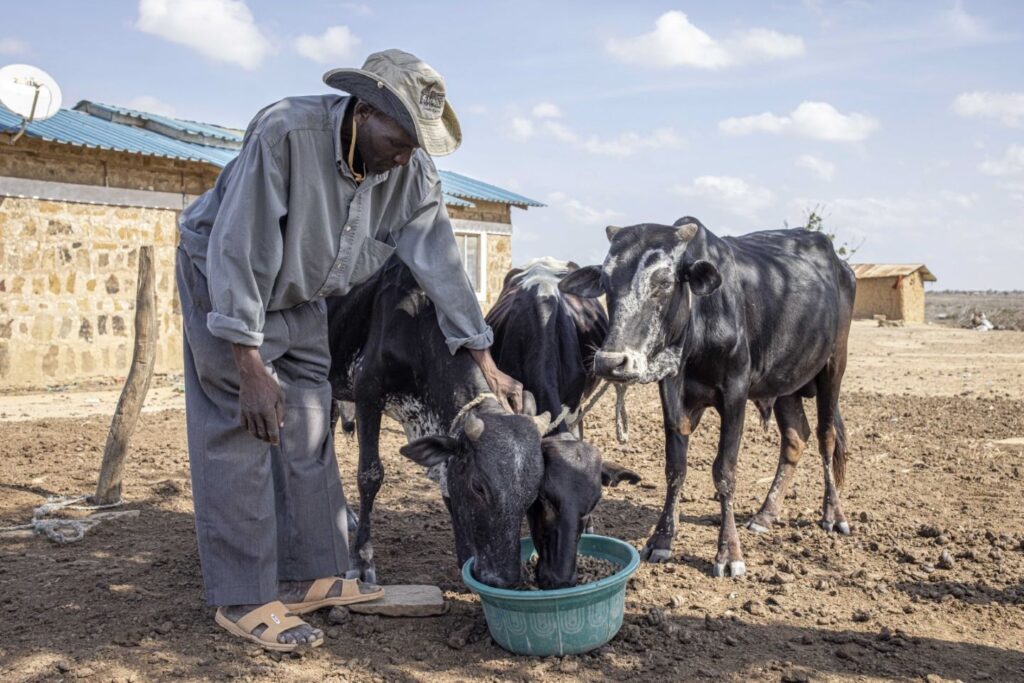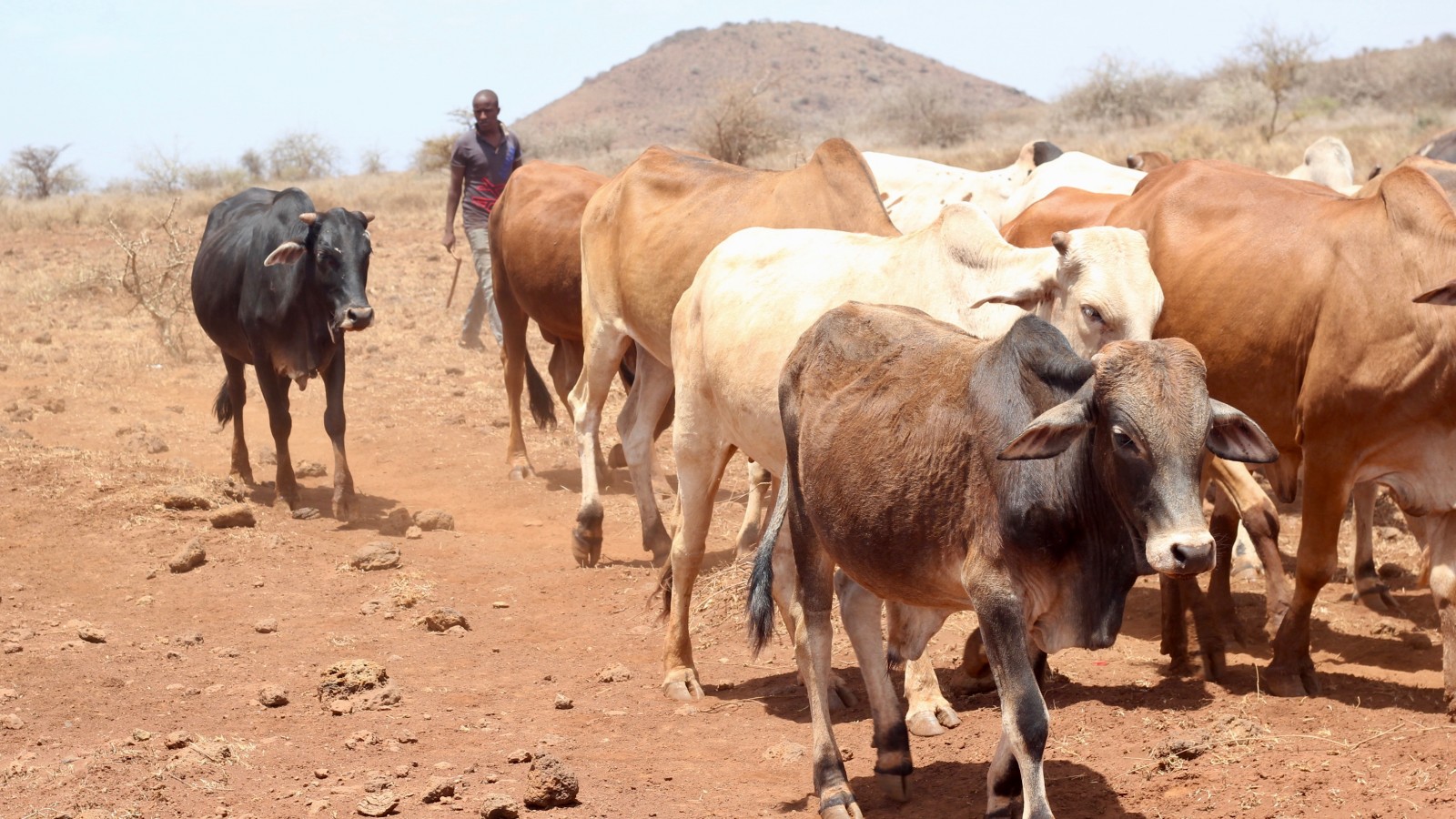Food & Climate
Livestock in Libya has been infected with several diseases, most notably bluetongue, which has negatively affected meat and dairy production alike, according to several reports seen by the “Food & Climate” platform.
Some livestock breeders indicated that the lack of vaccinations contributed to the spread of diseases and the elimination of a large percentage of their animals, according to a televised report by “France 24”.
The report explained that livestock in Libya has suffered several setbacks, even before these infections, due to the decline in the size of natural pastures as a result of climate change and the resulting drought.
It also faces a crisis of livestock smuggling and bringing them into the country without examination, which contributes to the spread of infectious diseases.
Bluetongue and other diseases have killed hundreds of heads of livestock, reducing the supply of dairy products and raising their prices.
It is noteworthy that global butter prices had risen to their highest level ever last September, due to concerns about the adequacy of milk supplies in Western Europe, which was swept by bluetongue disease, according to a report by the Food and Agriculture Organization (FAO).
Death of cattle in Libya
In November, the municipality of Zliten has confirmed the death of about 60 cattle and the infection of 70 of bluetongue disease.
Director of the Media Office in the municipality of Zliten, Ismail Al-Jawsmi, revealed that a large number of infected livestock had been detected in the Juma, Shadouk, Dawaw and Majer regions, which necessitated their isolation to avoid the expansion of the disease.
According to Al-Jawsmi, samples were sent to the Animal Health Office in Tripoli, calling on the Public Services and Environmental Sanitation Company to spray the necessary pesticides within the municipality, according to “Libya observer”.
In July, the Director of the Animal Health Office in Misrata, Salem Al-Badri, confirmed the death of more than 2,500 cows in the city since September of last year due to the spread of lumpy skin disease.
Al-Badri said that the city is currently classified as an epidemic area due to the infection of the majority of cows.
He added that the relevant authorities in the Ministry of Agriculture and Animal Health in Tripoli did not send vaccinations despite their repeated requests, and appealed to the Prime Minister of the Government of National Unity to intervene urgently to resolve the crisis.
Al-Badri pointed out that the emergence and spread of the disease is mainly due to the lack of vaccinations that have not been provided to them for 10 years, and the illegal entry of cows from Sudan.

He explained that the large number of dead and sick cows led to a decrease in milk production in the city from 70,000 liters per day to less than 20,000 liters. He added that the decrease in milk production will affect the municipality economically due to the presence of large projects that depend on it.
Al-Badri pointed out that if the spread of this disease is not controlled, its rate will increase in the winter because it spreads more in low temperatures.
China ban
In November, China has imposed an immediate ban on the import of ruminant livestock and related products from Libya, citing an outbreak of bluetongue disease. The ban, announced by the General Administration of Customs, applies to both direct and indirect imports.
The decision follows a report from Libyan authorities to the World Organization for Animal Health, confirming cases of the viral disease in Tripoli and Jufra. The announcement, dated November 21, underscores growing concerns over the spread of the disease, which affects cattle, sheep, and goats.
Bluetongue disease, named for the characteristic bluish discoloration of the tongue in infected animals, causes severe inflammation of tissues and can result in livestock fatalities.
In Libya, the Agricultural Police reported the deaths of livestock in the Al-Sawawa region, believed to be linked to the disease. Authorities were alerted by a local farmer last week, prompting an investigation and a formal case to be opened.
The bluetongue virus first appeared at the end of July, having originated in the Netherlands. Then Germany, France, the UK, Luxembourg and Denmark have all reported cases of the disease.

Bluetongue is a viral infection spread by midges. It mostly affects the production of milk but can also be deadly to ruminant species, particularly sheep. The virus does not spread to humans, so there is no danger in consuming dairy products, the Federal Agency for the Safety of the Food Chain confirms.

